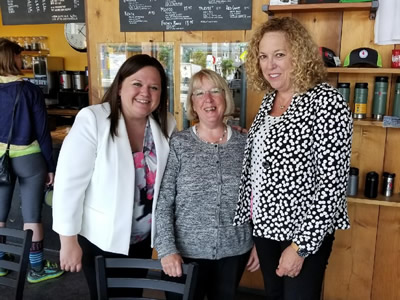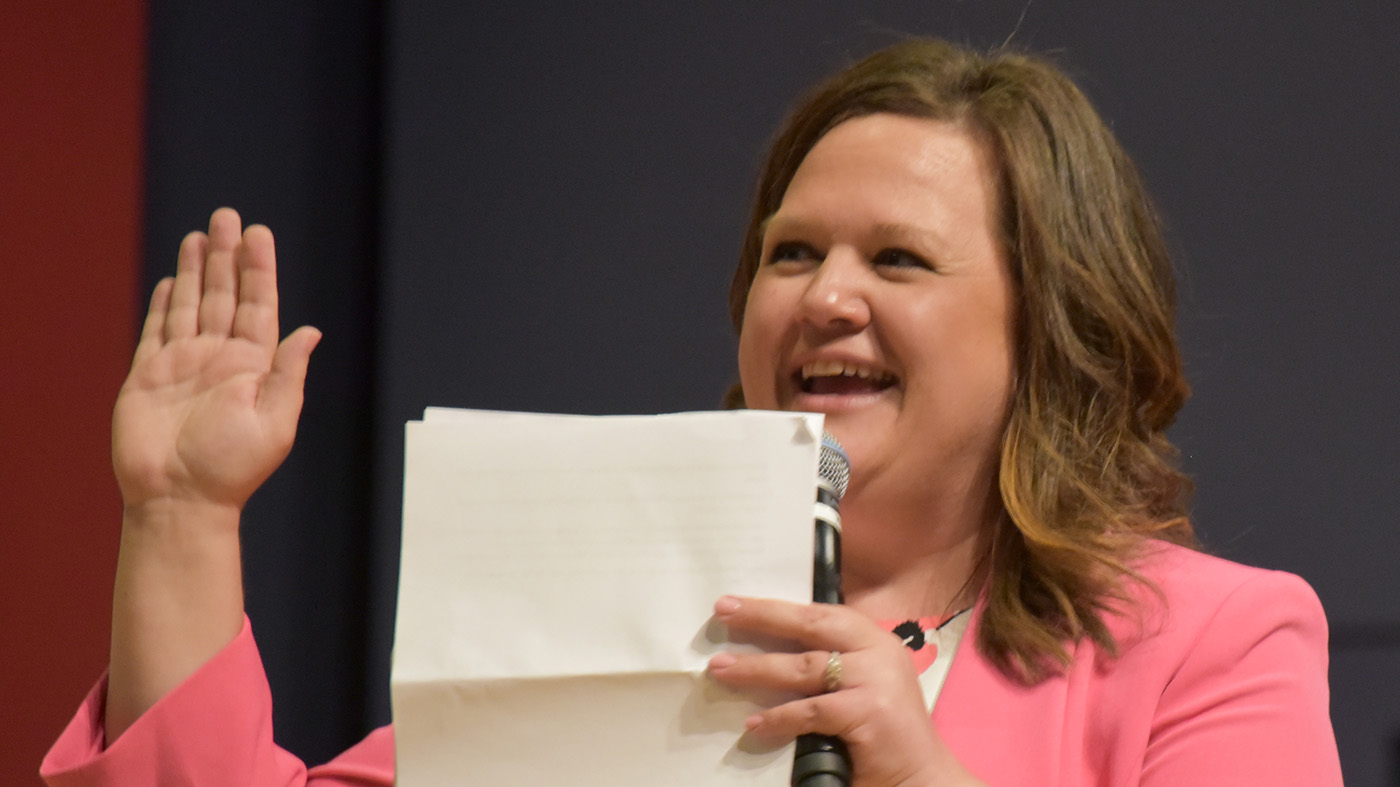There's a timeless proverb that if you give someone a fish, they eat for a day; teach them to fish and they eat for a lifetime.

Amanda DuBois '86 applies that same logic to formerly incarcerated people struggling with the lingering harmful effects of the criminal justice system, such as housing and employment discrimination. If you give them a lawyer, you help only them. "If you train a formerly incarcerated person, or a directly impacted person, to be a lawyer, they can use those tools to help so many other people," DuBois said.
Thanks to DuBois's advocacy and generosity, Seattle University School of Law launched the Full Circle Scholarship, which provides $5,000 each year for a student whose life has been directly impacted by the criminal justice system, with a preference for students who have been incarcerated themselves. Future donations will allow the scholarship to expand to more students.
It appears that this is only the second such law school scholarship of its kind (New York University School of Law offers similar tuition support as part of its Prison Reform and Education Project).
DuBois, who runs a thriving family law practice in Seattle's Fremont neighborhood, was inspired to create and fund the scholarship by her friend Tarra Simmons '17, who attended Seattle U Law after serving 20 months in prison.
Though Simmons excelled as a student, the Washington State Bar Association ruled that she lacked the character and fitness necessary to sit for the bar exam, a decision she successfully appealed to the Washington Supreme Court. She is now an attorney, a program director at the Public Defender Association, and a state representative.
"Tarra is a trailblazer," DuBois said. "She broke down barriers and that will make it easier for the law students who follow her."
Simmons said the Full Circle Scholarship will help to ensure that people most affected by mass incarceration, legal debt, and barriers to housing and employment are in the best position to create policy changes. For example, because of her own struggle to regain her voting rights, the first bill Simmons sponsored and helped pass as a legislator automatically restores voting rights to Washingtonians once they're released from prison.
"People who have survived the criminal legal system bring a perspective that benefits the legal profession, and they need to be centered in efforts at reform," she said. "I look forward to sharing my experience with the recipients, as we continue to tell our stories and remove stigma."
For DuBois, the scholarship's creation follows more than a decade of allyship with formerly incarcerated people. After writing a series of "how to" books on dealing with common legal issues, she heard from readers that their criminal records prevented them from finding work, securing housing, or handling many other seemingly simple life tasks.
"There are thousands of laws that hurt formerly incarcerated people. I'm a lawyer, so I figured we can change these laws," DuBois said. "The question that I always ask myself is, 'How can I best leverage my privilege?' Because I've been super lucky in life."
To that end, she created Civil Survival, an advocacy organization that holds workshops for people with criminal records, teaching them how to advocate for change by sharing their personal stories in meetings with elected officials.
Simmons attended one of those workshops as a law student and a powerful partnership was born. Together, Simmons and DuBois grew Civil Survival into an influential network of advocates. The organization has since become part of the Public Defender Association, with Simmons as its director. DuBois passed the torch and moved on to other projects, such as the scholarship.
Over the years, DuBois said she's met many justice-impacted people interested in becoming lawyers. In fact, for three years in a row, she has made a point of introducing potential students to Dean Annette Clark '89 by purchasing a particular Public Interest Law Foundation Auction item — a homemade Greek dinner at Clark's home — and inviting the aspiring lawyers to the party.
These future lawyers have the personal experience, the determination, and the passion, DuBois said, but they're hesitant about taking on debt. The scholarship is intended to ease that burden.
For help in naming the scholarship, DuBois reached out to her friend Glenn Martin, entrepreneur and founder of JustLeadershipUSA, which aims to reduce the number of incarcerated people in the U.S. in half by 2030.
Martin said the name is an acknowledgement that prison sentences strip individuals of their rights and human dignity, but there is no comparable effort to "welcome them back to humanity" when their sentences are completed.
"All human beings have the ability to repair harm and be restored, and if our criminal justice system won't acknowledge that, then the Full Circle Scholarship can help leaders to shed the toxic shame associated with a criminal record," he said.
Clark said the scholarship will help make the law school an even more welcoming environment for students who can use their personal experience with the criminal justice system to become powerful advocates for others.
"We were all changed for the better by having Tarra in our Seattle U Law community, and we're so thankful that Amanda's generosity will introduce us to more students with the same fire for justice," she said.
Support the Full Circle Scholarship at the School of Law's online giving portal.

